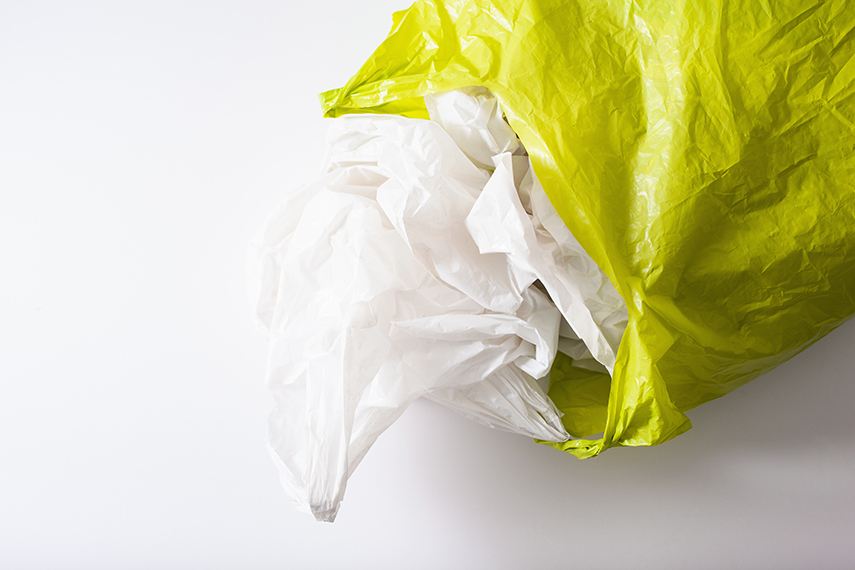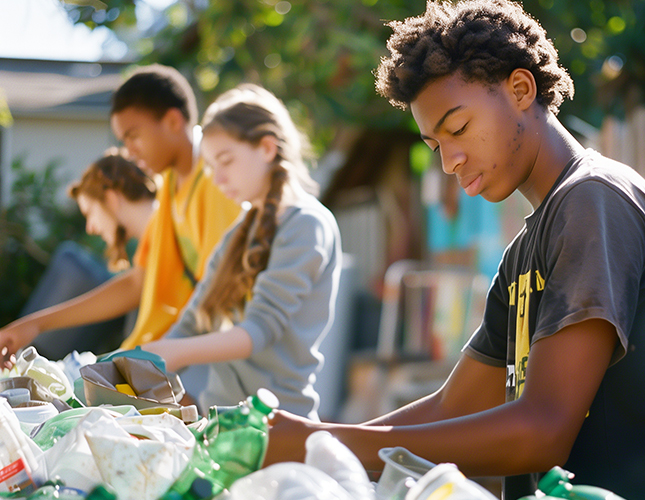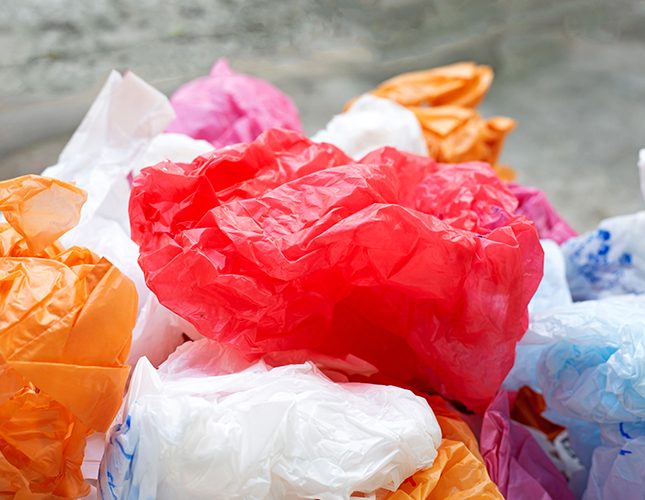If you ask a recycling manager what his main concern is, the answer is almost always “plastic bags in sorting centres”.
Plastic bags in sorting centres: enemy number one
The problem of plastic bags in sorting centres is not new, it was already identified in 2013 in a study by the Centre de recherche industrielle du Québec (CRIQ), ordered by Recy-Québec.
Plastic bags interfere with the identification of other recyclable materials and contaminate them. In addition, they must be removed by hand from the sorting lines, making them very labor-intensive and difficult to capture.
Plastic bags can also pose a hazard to sorting centre equipment. The plastic film can become entangled in the machines, wrap around the separators, and thus cause breaks and slowdowns in the operations.
Example of problems with plastic bags in sorting centres:
- If not removed, plastic bags wrap recycling equipment and quickly block processing screens.
- When too many bags are jammed, equipment must be shut down until it is cut manually.
- Plastic bags easily escape from bins, trucks and landfills, polluting land and waterways.
What to do with plastic bags?
- Refuse them
The best thing to do for plastics is to reduce them at the source. This can be done, for example by refusing single-use bags at retail checkouts and always carrying reusable bags.
- Reuse them
Ideally, we should avoid single-use plastic bags and plastic films. Otherwise, we should reuse them as much as possible.
Examples of reuse include:
- Keep and reuse your plastic bags when you go to the market and buy fruits or vegetables in bulk. This way, your shopping trolley stays clean.
- Keep your fresh herbs (such as parsley and coriander), placing the ends of the herbs in a large glass with water, then tying a plastic bag around the top of the bouquet, before putting them in the refrigerator. Nothing better to retain moisture and prevent your herbs from drying out!
- Use bags for small garbage cans like those in the bathroom. Store excess bags with other garbage bags and use them as needed.

- Gather them, before putting them in the bin
Putting all your plastic bags and film in a single, clear, tied plastic bag before putting them in the recycling bin will greatly facilitate their identification at sorting centres, and will prevent contamination of other materials.
Examples of bags and film to be grouped in a single bag:
- Grocery bag
- Shopping bag
- Bag of milk and bread
- Ziploc sandwich bag
- Packaging for cheese
- Clean plastic wrap
- Bubble wrap
- Publisac bag (without flyers) …








